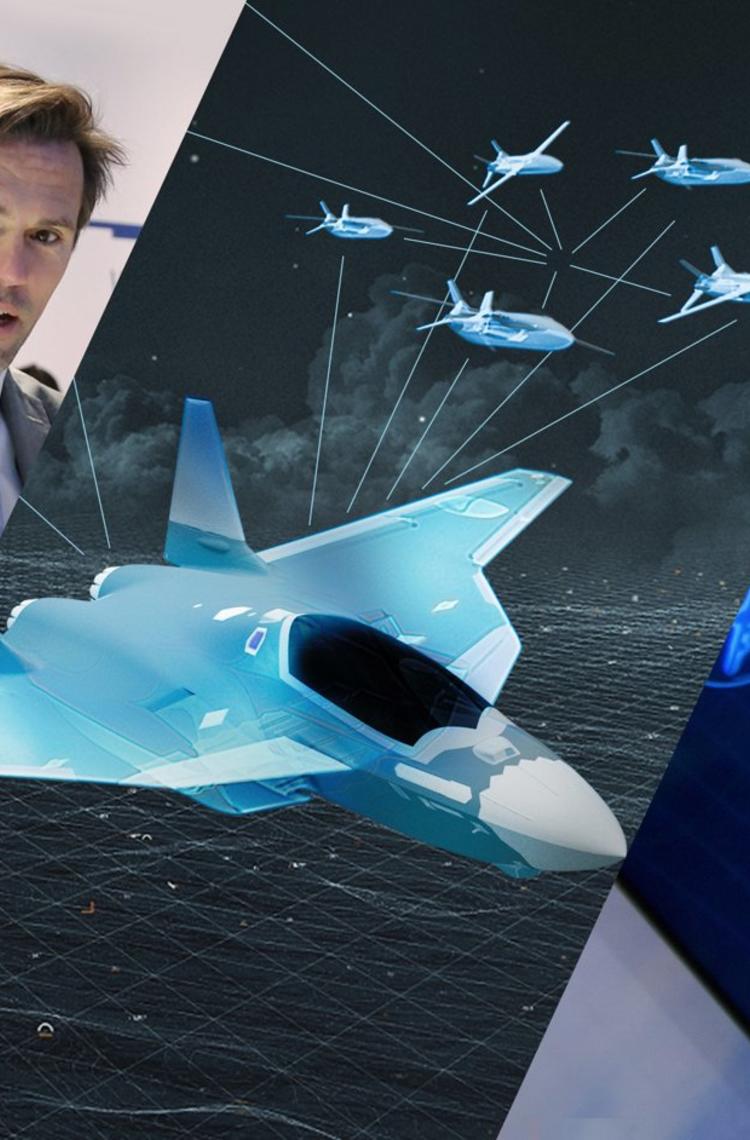Airbus expands its role in the global innovation ecosystem through start-up partnerships with that create value for the defence sector.
Continuing its broad support for innovation, Airbus is increasingly joining forces with start-up companies that can bring cutting-edge technologies to the defence sector.
In the latest initiative, the Airbus Defence and Space division teamed up last December with missile systems producer MBDA (which is 37.5% owned by Airbus) for an innovation challenge that covered 27 subjects – from secure digital services, communication systems and artificial intelligence to advanced design and simulation, the Internet of Things for defence applications, and autonomous systems.
Out of the challenge’s 63 original candidates, the 10 chosen finalists are to present their ideas this week on the Airbus/MBDA booth at the Techinnov event in Paris, which brings together start-ups, experts and decision-makers to foster innovation and develop ideas.
According to Laurent Legendre, regional manager for the Airbus Développement subsidiary, defence sector innovation has become more feasible as new and emerging technologies expand the scope of capabilities. “Innovating is easier and more accessible now, and integrating digital technologies is a new trend in the defence sector,” he explained.
In parallel with Airbus’ global approach to innovation, the company is increasingly looking at collaboration within France. The Airbus Defence and Space innovation team is realising proof-of-concept projects with an increasing number of start-ups each year.
Airbus has put a focus on addressing open innovation topics in France, taking the opportunity to select local start-ups and promote local innovation programmes that can benefit the defence sector.
- Laurent Legendre, regional manager for Airbus Développement
The Airbus/MBDA challenge builds on defence-associated collaboration that Airbus already has organised. In one example, the company joined forces with the French start-up Cosling to win the 2018 OptiPlan Challenge – a French Defence Procurement Agency (DGA) competition aimed at developing a software solution demonstrator to optimise the maintenance planning and usage of French Air Force aircraft.
More than just a demonstrator, the winning 2018 OptiPlan Challenge project is now in the implementation phase, as its OPTAFORCE tool has been contracted for operational deployment on the French Air Force’s fleet of Mirage 2000 combat aircraft.
Legendre said that even as a large aerospace company, Airbus has demonstrated its capability to partner with start-ups of all sizes. The company’s BizLab accelerator is successfully speeding up the work with start-ups – as well as transforming innovative ideas of Airbus own intrapreneurs – into valuable businesses. To date, BizLab has fast-tracked 50 start-ups along with 40 internal projects, and more than 1,000 start-ups have interacted with this business accelerator.
Airbus also is able to invest in the most disruptive start-ups with a corporate venture fund – Airbus Ventures – and more than 25 deals have already been finalised, with some of these start-ups being in the defence sector (including unmanned aerial vehicles - UAVs).
The innovative ideas challenge launched jointly by Airbus and MBDA in December 2018 attracted 63 original candidates.
At the Techinnov event in Paris this week, the following 10 chosen finalists are presenting their concepts:
-
Bloom, which proposed a next-generation social media analysis platform for defence and security applications,
-
Clearance, whose project is an air traffic management system for unmanned aerial vehicles (UAVs) that would help develop applications for UAVs,
-
Dessia, which created an advanced computer-assisted design system using an artificial intelligence engine,
-
Invenis, whose focus is on aircraft maintenance and predictive maintenance that increases aircraft availability,
-
M-CADOR, proposing a deep-learning digital image processing technology for infrastructure surveillance,
-
mirSense, with its quantum cascade technology laser for airborne communications and gas detection,
-
New Imaging Technologies, whose solution is an innovative electronic light sensor (in the near infrared and visible light domains),
-
Posithot, which came up with a positronic detection of very small defects in order to improve the performance of non-destructive testing,
-
Quandela, which developed a quantum light source for encrypted communications and the next generation of quantum computers, and
-
Theoris, offering a mixed-reality system for collaborative engineering
